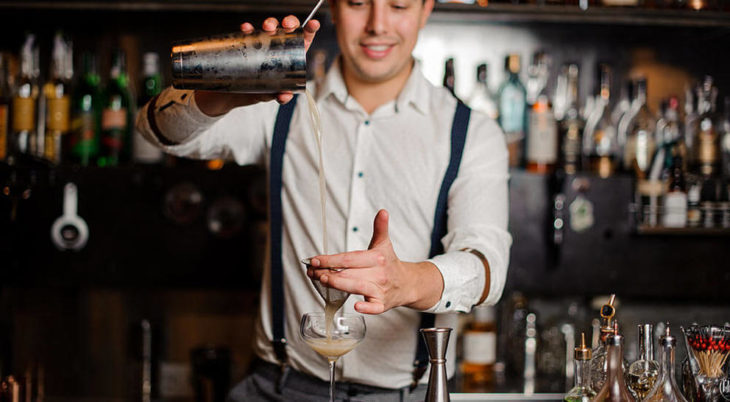It was October 2012. My Australian boyfriend and I had just been on a romantic, whirlwind adventure road trip around Europe. We spent the first month with his parents in Spain and France and then spent the following month on our own. We zigzagged through Switzerland, Austria, a brief drive through Lichtenstein, Germany, and finally Belgium. We’d been living in London before our travels and this was to be our final trip before we relocated together to San Francisco.

Source: iastatejobs.com
The preceding months had been fraught with anxiety as the expiration dates on our visas approached. As is the the case in many international relationships, my boyfriend and I struggled how to proceed as a couple. San Francisco was my choice, but he was not quite ready to leave Europe. In Bruges, on the last day of our trip, we broke up. We were one day away from going back to London, saying our goodbyes and then going our separate ways to reunite a few months later. The impending separation felt like it spelled doom, and we suffered over what to do.
We decided not to leave Bruges until we had a plan. With our ferry back to England re-booked for the following day, we toyed with different ways to both punctuate our epic two month journey and distract us from our predicament. He’s a chef and we’d just eaten our way through Western Europe, so an indulgent meal at three Michelin starred restaurant Hertog Jan felt appropriate.
Sure, it was 255 euro a head plus wine, but we’d spent big money on meals before. Not only would the food be impeccable, but the several-hour event would give us something to talk as a break from the looming decision. They had one table available at 9:45 and by 7:00, we were starving. Our bellies ached with lack of sleep and sustenance. We were both experienced enough eaters to know that going to a multi-course meal starving was for rookies. It was a common mistake that we were not prepared to make. Why not, we thought, head to the center of town for some famous Bruges frites (fries)? We’d share a portion, and the starchy carb would keep us full for the perfect amount of time. And, of course, taste amazing.

Source: European Best Destinations
By the time we got to Hertog Jan — where we’d be indulging in about six courses (plus snacks) of some of the most decadent food in the world — we knew we were in trouble. Slightly nauseous and bloated with stress, we were still full of potato. POTATO. I was unbuttoning my top button before the first perfectly-crafted amuse bouche hit the table.
What unfolded over the next three hours was like a verse of that Alanis Morissette song “Ironic”: Fois gras and passionfruit when you’re already full. Dry heaving at miso-glazed eggplant. Fourteen courses and all you need is a nap. And isn’t it ironic.
One by one the courses came, and they were just as decadent as we’d expected. You know you’re toeing the line between foodie and glutton when you seriously consider a tactical vomit. The restaurant’s mission statement may be “driven by simplicity,” but even something as fresh as eight varieties of tomato felt heavy. We watched in agony as the chef carefully arranged home grown flowers and herbs on our early dishes, and poured unctuous sauces over the tops of steaming plates. You see, we’d been given the table right in front of the kitchen. My boyfriend had been to Hertog Jan the year before with a local chef, and remembering him, the kitchen sent us additional dishes. The head chef looked up and smiled at us periodically, and we responded with a gulp of anticipation about what was to come next.
As I sat and looked longingly at the silky chocolates that our enthusiastic server presented with compliments from the kitchen, I decided that I officially hated myself. How on Earth could we have thought that FRENCH FRIES were a good idea before this meal? We’d just spent over 500 euro on a meal that we only ate 70 percent of, and that 70 percent was a struggle. Those chocolates — Belgian chocolate truffles made lovingly in one of the best kitchens in the world — were simply not going to fit. I looked across at my boyfriend giving those chocolates his best effort and realized that he, too, was struggling. There we both were, presented with something we really loved and wanted, but the timing made it impossible to enjoy. The realization that the timing was off for us hit me with a weight as heavy as the spins from my seven glasses of thoughtfully paired wine. Eating those French fries and strolling through Bruges hand in hand was excellent … but not before a multi-course meal at one of the most critically-acclaimed restaurants in the world.

Source: European Bartender School
It is often the case that because of timing, we have to choose one good option over another. Before committing to a relationship that requires serious deviations from one’s former life plan — say, choosing which continent to live on — careful thought must be given and growth must occur. Before having a meal at a three Michelin-starred restaurant, one has to plan the day’s meals strategically in order to be just the right amount of hungry. Failing that, the beauty of the meal or relationship is spoiled. Had we given any logical thought to our pre-meal snack, my boyfriend and I would have seen that the timing of the fries just didn’t make any sense. Similarly, it became abundantly clear that our timing was off as a couple. We did end up breaking up, and staying together would have spoiled the relationship down the road, just as the immediate gratification of the fries meant that we spoiled our meal.
This October will mark the two year anniversary of that ill-fated dinner at Hertog Jan. But there’s a twist: now I live in Melbourne with that very same Australian after spending a painful but constructive year apart. We (mostly he, if we’re being honest) continued to make crazy, poorly-timed decisions. We’ve grown and changed. And as we both secretly suspected would happen, the paths we took after that fork in the road have converged. It didn’t happen exactly when I wanted it, but it still happened.
Now we evoke the memory of the Hertog Jan french fry debacle often; it’s a metaphor which we regularly reference when making decisions. In life and in eating, one must always consider the timing.
Original by
